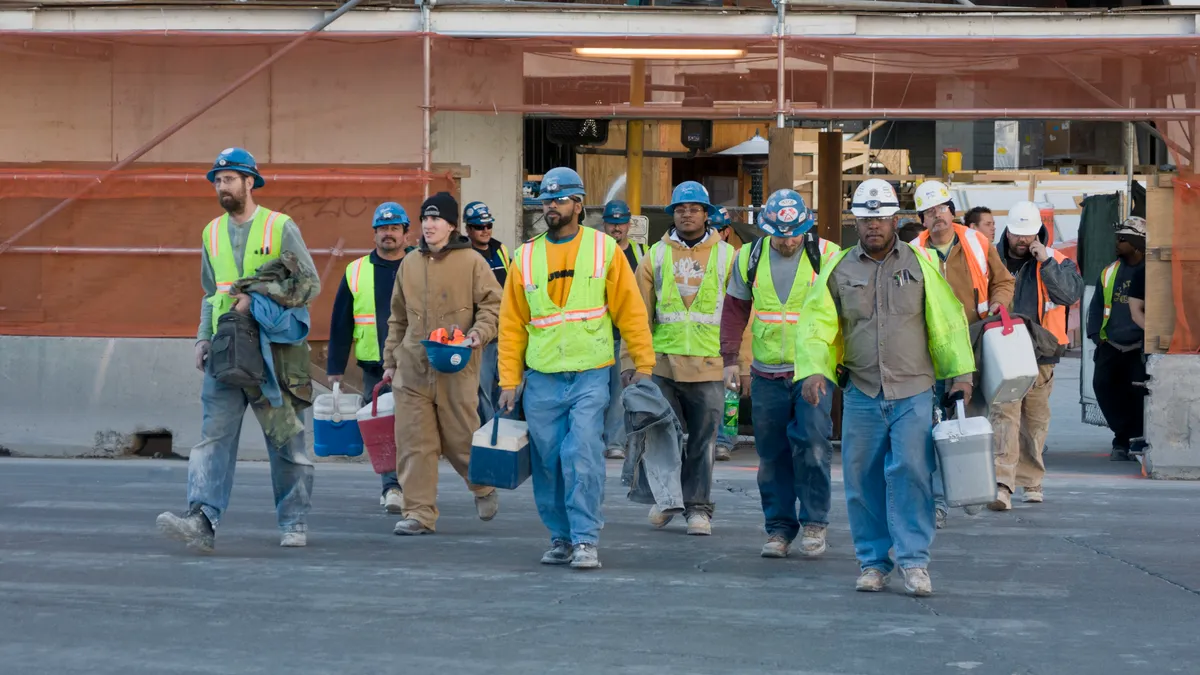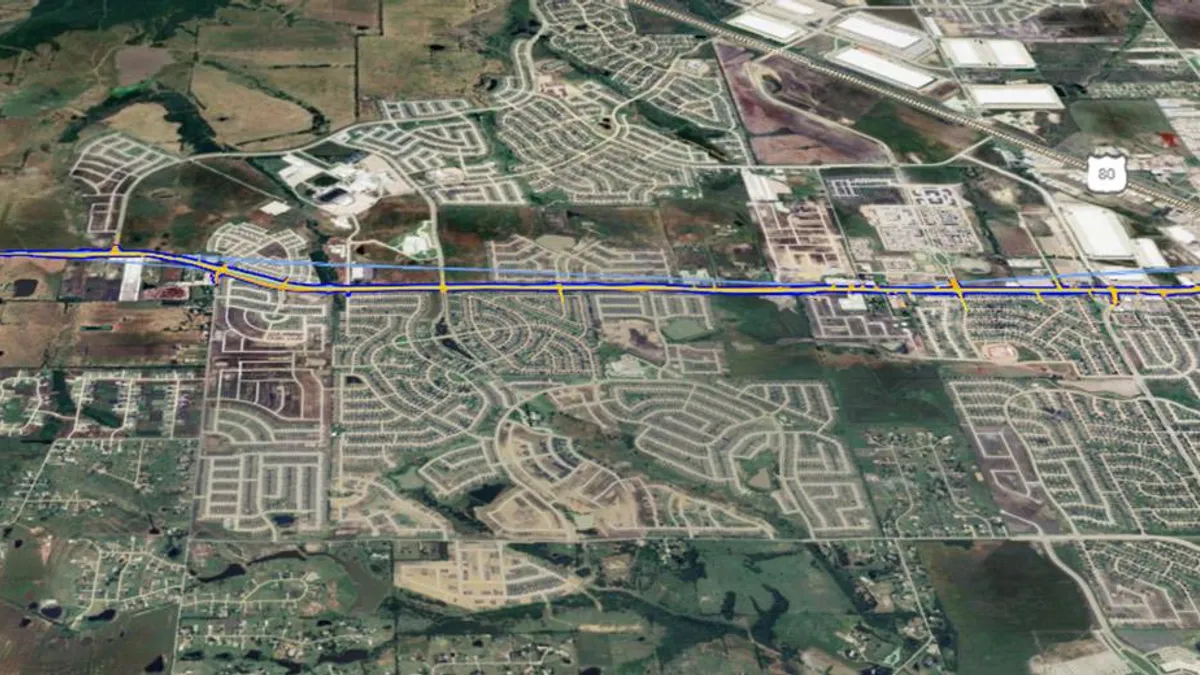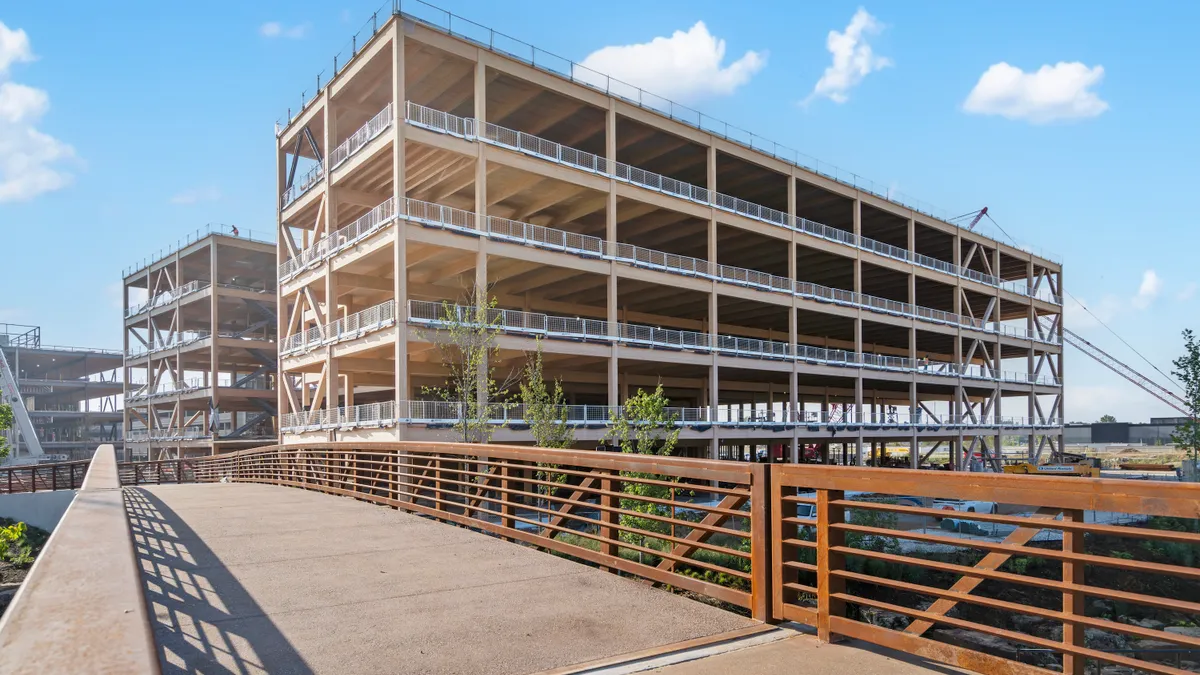The construction industry’s utilization of undocumented workers has always been carried out with somewhat of an unspoken agreement. Often several times removed from a general contractor via layers of subcontractors, the employment of foreigners without proper work credentials has taken on a "don’t ask-don’t tell" quality and has managed to survive, regardless of what immigration enforcement policy has thrown at it.
But that could all change soon.
During the 2016 presidential election campaign, then-candidate Donald Trump made the deportation of undocumented individuals central to his platform. Now, President Trump has continued that narrative but has stressed to the public that any crackdown would focus first on the deportation of violent criminals.
Last month, he signed an executive order empowering U.S. Immigration and Customs Enforcement (ICE) to hire 10,000 additional officers to track them down and round them up. However, sooner or later, individuals who have committed no other crime than to live and work in the U.S. without proper documentation are bound to be caught up in the stepped-up enforcement action. That will, in all likelihood, include those working in the construction industry.
So how will the heightened enforcement impact contractors? The answer extends beyond enforcement issues, as the labor shortage and other workforce management practices are likely to come into play.
Heightened scrutiny of business practices
"The rule changes that have come through executive order should not affect the construction trade at all, but the uptick in enforcement definitely could," said attorney Gregory Palakow with law firm Archer in New Jersey. Although not immediately, the construction industry could start to feel the impact over the next several quarters as immigration sweeps also ensnare workers, he noted.
Businesses that are suspected of employing undocumented workers could also come under increased scrutiny, Palakow said, but that isn’t something particular to Trump or the Republicans. "That is not a political type of thing," he said. "More people were removed and deported from the U.S. than ever before [during President Barack Obama's administration]. Employers were also subject to a great amount of visitation and fines and raids."
Former federal trial attorney for the U.S. Department of Homeland Security Clete Samson, now with Kutak Rock in Omaha, added, "The construction industry is the second leading industry for relying on unauthorized workers."
A November 2016 report from the National Bureau of Economic Research found that the construction workforce was comprised of 13% undocumented workers between 2011 and 2013 — significantly higher than the 4.9% national average.
"They say to themselves, 'If I don’t employ these individuals, my competition down the street will.'"

Clete Samson
Attorney with Kutak Rock
That fact means that contractors will most likely be targeted by ICE in the form of raids and other enforcement actions in the coming months and possibly years. If ICE takes on as many new employees as are specified in Trump’s order, "they’ll need something to do," Samson said. "They’re going to be accountable for arrests, deportation and removals."
When ICE focuses on employers, it’s most often in the form of a paperwork check to ensure that they are collecting required employee documents — like social security cards, birth certificates or other proof of work authorization — and then checking to make sure those documents are legitimate, according to Samson.
These I-9 audits, referring to the identity-verification form employers must have on file for all employees, can result in a civil fine of more than $2,000 for failure to comply, and Samson warned that employers should double-check and ensure that they have complete, valid I-9s on file for each worker.
Employers also need to take a hard look at their independent contractor relationships and make those connections airtight, according to Samson. A misclassification of independent contractors as employees could lead to fines, penalties and additional taxes from the Department of Labor or Internal Revenue Service.
If an employer finds itself with a fresh crop of workers with questionable documentation, that could open up a can of worms with ICE. In many cases, federal agencies share information, so one investigation could mean another agency will be knocking on the door soon, according to Samson.
It’s just as likely, however, that employers who have been operating in a world where undocumented labor is commonplace will continue to risk the civil penalties, both out of habit or, as Samson said, as a cost of doing business. "They say to themselves, 'If I don’t employ these individuals, my competition down the street will.'"
The labor shortage's role in the issue
Add on a skilled-worker shortage that has been growing over the last several years, and construction companies are feeling the presure.
"Post-recession, there was massive skilled labor drain, then costs were 30% higher than pre-recession," said Jesse Fowler, president of Tellus Design + Build in Costa Mesa, CA. Even though workers have slowly crept back into the industry, "There’s still a general concern about hiring across labor pools," he said.
His company’s solution is to "try to gather as many good [documented] guys as we possibly can and take good care of them," but he said that some of his competitors would be out of luck — and could even lose their businesses — if the labor board or ICE came knocking at their doors and insisted on seeing the required employee paperwork.
Elliott Dube, an expert on construction labor and law issues with Bloomberg BNA, said that the builders he has spoken with recently are becoming "increasingly nervous" at the prospect of expanded immigration enforcement and more deportations.
Many construction companies have been dealing with the skilled labor shortage, in part, he said, by increasing their reliance on skilled labor from outside the country. "Builders, at this point, might be getting more apprehensive. They see it as their way of plugging the leak being taken away from them," he said.
In areas where demand is the highest, Dube said, companies have reported that they needed to turn down jobs because they couldn't find adequate documented workers. At the same time that these companies are expressing frustration with Trump’s immigration efforts, he said, there’s also optimism that he will cut down on regulations like the federal blacklisting rule and the Department of Labor’s proposed overtime regulation changes.
"We have long championed allowing more people with construction skills to legally enter the country as a way to provide temporary relief for construction firms."

Brian Turmail
Executive director of public affairs for the AGC
There is also the faction of contractors who don’t see deportation as a bad thing, but as a way to level the playing field. "They see the competition using undocumented workers and being able to submit lower bids on projects because they’re able to pay less," Dube added.
However, Fowler said it can be difficult to find legal workers who want the toughest construction jobs. "Nobody wakes up and says, 'I want to hang drywall,'" he said.
One thing is for sure: the Southern California construction industry, where Tellus operates, would suffer if any big changes come to the market that could artificially raise prices higher than they already are. "If anyone loses just one guy to a crackdown by immigration, that’s a 10% to 25% increase [in labor prices]," he said.
What's next in the undocumented worker controversy
So is there a legal solution?
At the end of the day, Palakow said, a guest-worker program would be beneficial to everyone. Obama proposed such a program early on in his administration, but Palakow said he used up the majority of his political capital on the Affordable Care Act and couldn’t rouse enough support for the initiative, which would have been a way for people to legalize their work status in the U.S. but not create a path to citizenship.
The Associated General Contractors of America has long advocated for a guest-worker program as well. "In general, we have long championed allowing more people with construction skills to legally enter the country as a way to provide temporary relief for construction firms struggling to find qualified workers while federal, state and local governments work to rebuild the domestic pipeline for recruiting and preparing new construction workers," said Brian Turmail, executive director of public affairs for the AGC.
Dube said many of the companies that are concerned about the possibility of an impending crackdown by ICE are also talking about the culture change that needs to happen to make construction an attractive career with young people.
"If [students] aren’t putting themselves on the path to enter the skilled trades, then contractors have to find another source," Dube said. "Contractors might be looking at potentially skirting the law and getting undocumented labor to meet their needs."






















